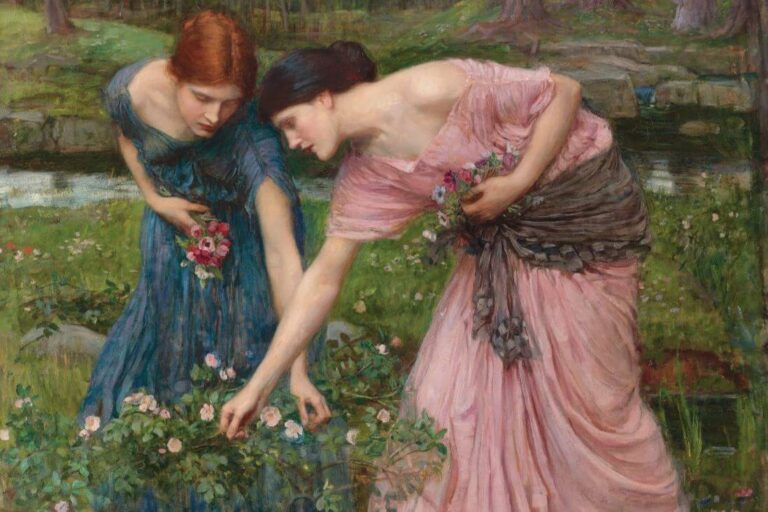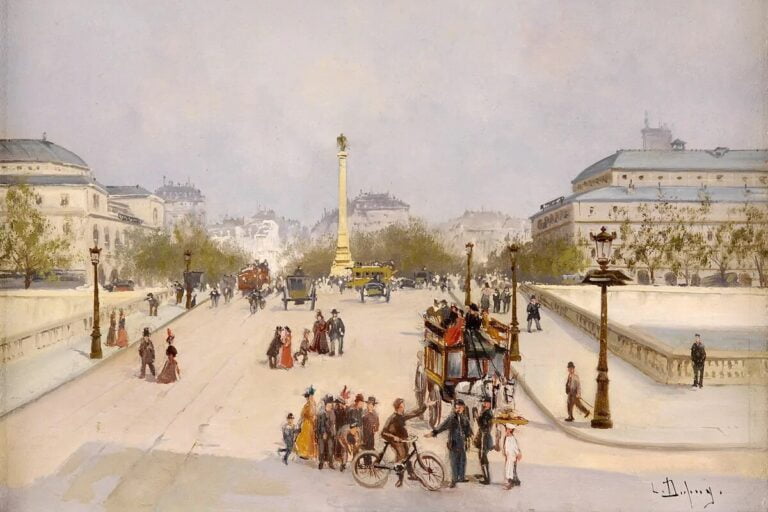Today I would like to take a look at the poem All the world’s a stage by the English playwright and poet William Shakespeare (1565-1616). I encountered it not when reading Shakespeare’s As you like it, where it originates from, but when squandering my time online, when I encountered this beautifully narrated reading by Jack Cutmore-Scott. These days I rarely read poetry, which is a shame, since it can be such a pleasure to do so. In a time where we are assumed to use our time efficiently, let us not neglect the delights of employing language purely for the sake of joy and play.
I think good art is universal, which does not mean that everyone should like it, but that everyone can identify with it in one way or another. It conveys an idea that applies to everyone, something everyone can relate to. In short, it is a world in itself. This particular poem addresses something we can all relate to: one’s course of life, from birth to death. The poem essentially expresses the universality of our lives. Everyone will roughly have to go through the same stages of life, whether he likes it or not, experiencing what it means to be human.
In the poem, Shakespeare identifies seven stages of life: the infant, the school-boy, the lover, the soldier, the justice, the pantaloon, and one’s second childishness. Shakespeare is particularly expressive in his characterization of these stages: the infant is mewling and puking, the school-boy whining and creeping, while the lover sighs and sings a woeful ballad. The soldier is the impetuous adolescent, who is still finding his way in life, jealous and sudden and quick in quarrel. And then the justice, the man who has found a steady course in life, full of wise saws, who weighs everything and everyone with care and consideration. Then we have the wise old man, with spectacles on nose, whose voice is already turning toward childish treble. Finally, even his weak voice starts to fade, giving way to silence and a second childishness (infant comes from the Latin infans, ‘unable to speak’). And so, man has come full circle. Until nothing remains. Sans teeth, sans eyes, sans taste, sans everything.
Some might say that this idea of one’s course of life may seem limiting or even frightening, because we cannot escape the loop, as it were. However, is it not rather a comforting and liberating idea? To think that in the history of mankind, everyone has gone through the same joys, difficulties, longings, and fears. We all begin as the child begging for love and attention, turning into the adolescent anxious for recognition, after which we might become wise and moderate. And just when we begin to get the hang of it, our body and mind start to deteriorate, until we finally fade into eternity.
The idea of man’s mortality has always comforted me. We have our exits and our entrances. We all play our role in life, but eventually we will have to leave the stage. It does not matter what you do, we will all end up the same. Forgotten you may be, your life will always be, and will never not have been. It is eternalized in the past. It can never be undone. Life, is it not a wonderful thing?
All the world’s a stage,
William Shakespeare (from ‘As You Like It’)
And all the men and women merely players;
They have their exits and their entrances;
And one man in his time plays many parts,
His acts being seven ages. At first the infant,
Mewling and puking in the nurse’s arms;
And then the whining school-boy, with his satchel
And shining morning face, creeping like snail
Unwillingly to school. And then the lover,
Sighing like furnace, with a woeful ballad
Made to his mistress’ eyebrow. Then a soldier,
Full of strange oaths, and bearded like the pard,
Jealous in honour, sudden and quick in quarrel,
Seeking the bubble reputation
Even in the cannon’s mouth. And then the justice,
In fair round belly with good capon lin’d,
With eyes severe and beard of formal cut,
Full of wise saws and modern instances;
And so he plays his part. The sixth age shifts
Into the lean and slipper’d pantaloon,
With spectacles on nose and pouch on side;
His youthful hose, well sav’d, a world too wide
For his shrunk shank; and his big manly voice,
Turning again toward childish treble, pipes
And whistles in his sound. Last scene of all,
That ends this strange eventful history,
Is second childishness and mere oblivion;
Sans teeth, sans eyes, sans taste, sans everything.

(Wikimedia Commons)



